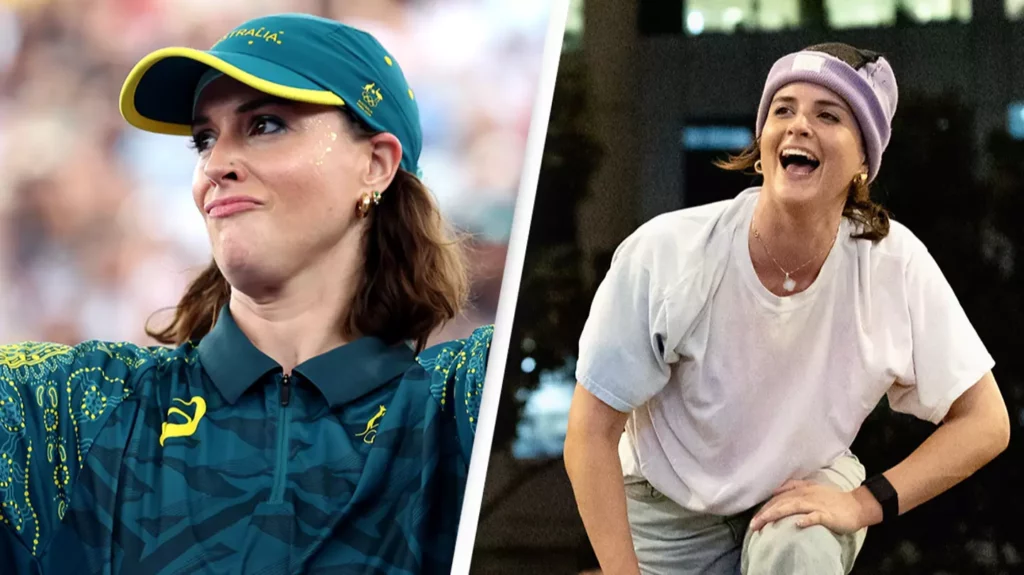Australian breakdancer Rachael Gunn, known by her stage name Raygun, has been offered mental health support by officials after her performance at the Paris 2024 Olympics sparked a viral online controversy.
The 36-year-old athlete, who made her Olympic debut in the inaugural breakdancing event, found herself at the center of an intense social media storm following her appearance.
Raygun, a university lecturer from Sydney with a strong background in breakdancing and hip-hop culture, saw her Olympic routine receive widespread criticism online.
Despite her extensive experience and commitment to originality, her performance was met with a 0.0 score from the judges, leading to a flurry of memes and negative comments across various platforms.
In response to the backlash, Sergey Nifontov, the general secretary of the World DanceSport Federation, announced that Raygun has been offered mental health support.
Nifontov expressed his concern over the online response, stating, “That should not happen in our world. Something is going in the wrong direction.”
The federation has been in direct contact with Raygun and the Australian Olympic team, ensuring that the necessary mental health resources are available to her during this challenging time.
“We are aware of what has happened, especially on social media, and definitely we should put the safety of the athlete, in this case, mental safety, in the first place,” Nifontov added.
The federation’s safeguarding officer has been made available to Raygun to provide the support she may need as she navigates the aftermath of the controversy.
Raygun herself has maintained a positive outlook, despite the harsh criticism.
She defended her performance, emphasizing the importance of creativity and originality in her art.
“All my moves are original. Creativity is really important to me. I go out there and I show my artistry. Sometimes, it speaks to the judges, and sometimes, it doesn’t. I do my thing and it represents art. That is what it is about,” she stated.
The head judge of the breakdancing competition, Martin Gilian, also voiced his support for Raygun, highlighting that breakdancing is fundamentally about bringing something new and original to the table.
“This is exactly what Raygun was doing,” Gilian noted, adding that the breakdancing and hip-hop communities stand behind her.
The controversy surrounding Raygun’s Olympic performance has not only brought attention to the challenges athletes face in the digital age but also underscores the importance of mental health support for those in the public eye.
As social media continues to play a significant role in shaping public perception, the steps taken by the World DanceSport Federation to support Raygun set a critical precedent for protecting the well-being of athletes amid intense scrutiny.


